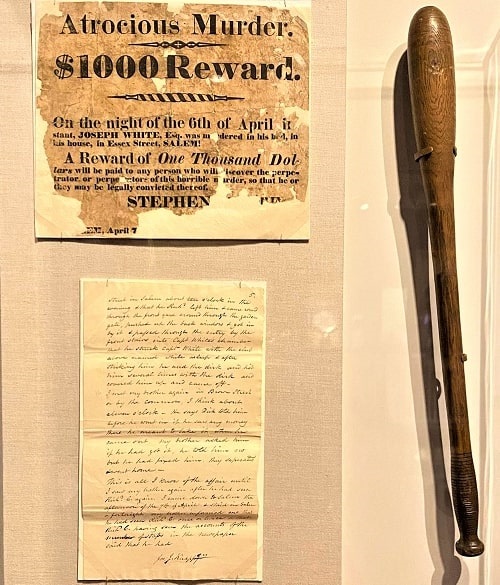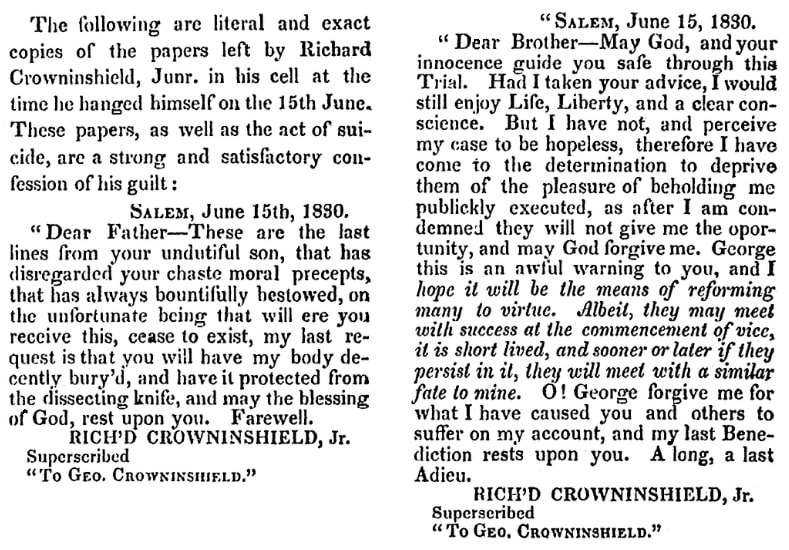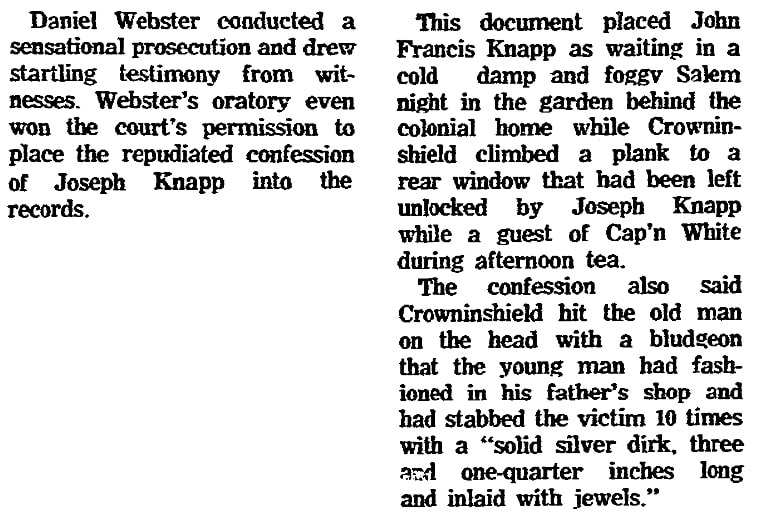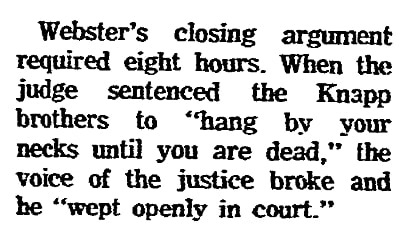Introduction: In this article, Melissa Davenport Berry continues her story about a spooky murder mystery that happened in Salem, Massachusetts, in 1830 and shocked the country, focusing on the murder trial. Melissa is a genealogist who has a blog, AnceStory Archives, and a Facebook group, New England Family Genealogy and History.
Today I continue the story of the mysterious murder of wealthy ship owner Captain Joseph White of Salem, Massachusetts, in 1830. The mansion Capt. White occupied, known as the Gardner-Pingree house, is owned by the Peabody Essex Museum (PEM) that is currently hosting an exhibit “Salem Stories,” and the Captain White murder is displayed under the theme of “Scandal.”
The motive for the Captain’s murder was a mystery – although there was money and other valuables in his house, the killer took nothing. Then, hoping for a reward, an ex-convict said three men had tried to recruit him in the murder plot: two brothers, John and Joseph Knapp; and the man they hired to do the actual killing, Richard Crowninshield Jr.
One of the pieces in the PEM exhibit is a written confession used as evidence in the long-ago murder trials. According to accounts, Joseph J. Knapp Jr. made a full confession to Rev. Henry Colman that he planned the murder.

Knapp knew that Captain White had made out his will and given to his niece Mrs. Bickford/Beckford (the surname is spelled various ways in various records), Knapp’s mother-in-law, a legacy – but if White died without leaving a will, Knapp expected she would inherit much more than the legacy in the Captain’s will. Knapp thought that offing White and destroying the will was the solution to getting a larger inheritance than was coming to his mother-in-law.
Named in Knapp’s confession was Richard Crowninshield Jr., who was arrested as the prime suspect on June 1. After hearing that Knapp confessed, Crowninshield committed suicide on June 15. Newspapers published the details. Here is a report from the Saratoga Sentinel.

After Crowninshield was out of the picture, Knapp saw an opportunity and recanted his confession. Because Crowninshield had been the principal suspect and Joseph only charged as an accessory to the murder, the legal aspects of the case under the laws of 1830 became complicated. If the principal could not be convicted (and after his suicide, who could convict a corpse?), the accessories to the crime were off the hook.
Enter U.S. Senator Daniel Webster. The renowned attorney was called to Salem to head the prosecution, to name a new prime suspect and bring down new indictments to prevent the Knapp brothers from, literally, getting away with murder.
The Boston Herald reported that “Daniel Webster conducted a sensational prosecution” and elicited very strong testimony from several witnesses. Webster even convinced the judge to accept Joseph Knapp’s confession as evidence.

Webster – U.S. senator, powerful lawyer, and famed orator – drew upon all his powers to wrap up the case, making an eight-hour closing argument that convinced the jury and eventually moved the judge to tears.

Note: Just as an online collection of newspapers, such as GenealogyBank’s Historical Newspaper Archives, helped tell the stories of the murder trial for Capt. Joseph White, they can tell you stories about your ancestors that can’t be found anywhere else. Come look today and see what you can discover!
Note on header image: a portrait of Captain Joseph White. Courtesy of Peabody Essex Museum; photo taken by staff member Ben Arlander.
Stay tuned for more.
Related Articles:
